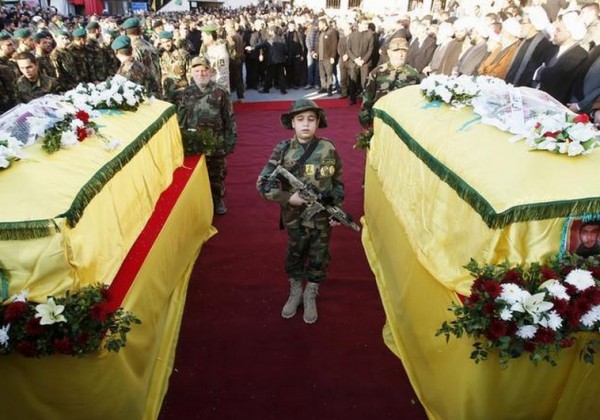 The Israeli army is sending reinforcements to the Syrian and Lebanese borders amid tensions following Sunday’s airstrike on a Hezbollah convoy near Quneitra on the Syrian-controlled side of the Golan Heights, Israeli news website Ynet reported on Thursday
The Israeli army is sending reinforcements to the Syrian and Lebanese borders amid tensions following Sunday’s airstrike on a Hezbollah convoy near Quneitra on the Syrian-controlled side of the Golan Heights, Israeli news website Ynet reported on Thursday
Ynet quoted IDF sources as saying that massive IDF movement is to occur in the upcoming days. The deployment of large amount of IDF forces and equipment is to address threats made by Iran and Hezbollah after the airstrike.
Northern Israel has been on high alert for possible Hezbollah retaliation following Sunday’s attack and military convoys leading tanks and armored personnel carriers were seen Tuesday in the Golan Heights and the upper Galilee, the report added
Farmers from nearby towns were reportedly told to stay away from their fields near the border. The army also deployed a number of Iron Dome air defense batteries to the North on Monday evening.
However a source within United Nations Interim Force in Lebanon reported that that the peacekeeping force’s activity hasn’t been disrupted, and they are working in coordination with the Lebanon Army to “defuse the tensions and preserve the stability on the ground.”
The tensions on the border following this week’s alleged Israeli airstrike that killed senior Hezbollah officials in the Golan Heights are being felt in Lebanon, where apprehension is growing over the specter of another cross-border war.
Lebanese Future TV station reported on Thursday that Israeli reconnaissance planes were flying sorties over southern Lebanon since the morning hours.
An Al-Arabiya TV station reported that the Lebanese military and UNIFIL were conducting joint patrols all along the border with Israel. The TV network also reported that the Lebanese army had erected a number of checkpoints along roadways leading to the Israeli border.
The commander of the Revolutionary Guard, Gen. Mohammad Ali Jaafari, said that the Iranian response would be to strike Israel with “ruinous thunderbolts.”
The threats of retaliation did not sit well with Future Movement MP Ahmed Fatfat.
“These comments threaten to drag Lebanon into a war with Israel ,” Fatfat said, lamenting that “both Lebanon and Syria are under Iranian tutelage.”
Senior Iranian military officials on Thursday continued to threaten “crushing responses” against Israel for the death of a top Revolutionary Guards officer in an airstrike on the Syrian side of the Golan Heights earlier this week.
Brigadier General Hossein Salami, the second-in-command in the Revolutionary Guards, told Iranian state media on Thursday that his troops are capable of firing Shahab-3 missiles on Israel.
Dis Israel lie about the target

Israel claimed that it was unaware an Iranian general was traveling in a Hezbollah convoy it claimed that it targeted with an air strike in Syria on Sunday.
But according to a report by Al Rai Kuwaiti newspaper Israel was fully aware that Iranian Revolutionary Guard General Mohammed Allahdadi was in the 2 car convoy as soon as he left Damascus .
According to the report Allahdadi was tracked through his mobile phone which he acquired in Syria as soon as he arrived in Damascus last December to assume responsibility for the Iranian Revolutionary Guards operation in Syria .
The report revealed that the airstrike took place about 90 minutes after Allahdadi left damascus which gave the Israeli leadership enough time to carry out the airstrike .
The report also indicated that the Hezbollah military leader Mohammed Issa accompanied Allahdadi on the trip along with the other Hezbollah members to show him the area .
Allahdadi was killed with Issa and the son of the group’s late military leader, Imad Moughniyeh, in Sunday’s attack on a convoy near the Israeli-occupied Golan Heights.
The sense of tension following the air strike was underlined by comments made by Iranian Revolutionary Guards’ head, General Mohammad Ali Jafari, on Tuesday, who was quoted by Fars news agency warning of retaliation.


Leave a Reply
You must be logged in to post a comment.